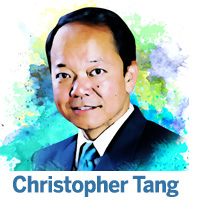Differences between Western and Eastern civilizations have long contributed to international tensions, with historical events like the opium trade and recent trade conflicts increasing anti-China sentiment. The West should consider measures to promote global peace.
 Anti-China sentiment in the West, particularly in the United States, is deeply rooted in historical events and cultural portrayals that have perpetuated stereotypes and fostered mistrust.
Anti-China sentiment in the West, particularly in the United States, is deeply rooted in historical events and cultural portrayals that have perpetuated stereotypes and fostered mistrust.
This narrative began with the Chinese Exclusion Act of 1882, which was the first significant law restricting immigration into the US based on ethnicity. The act reflected widespread xenophobia and economic anxiety, culminating in violent episodes such as the 1871 Los Angeles Chinese massacre, when a mob killed 18 Chinese immigrants.
Such events laid the foundation for a persistent anti-China narrative that continues to influence Western perceptions.
Throughout the 20th century, Chinese individuals were often depicted in Western media through a lens of exoticism and inferiority. Chinese women were sexualized, while Chinese men were portrayed as weak or untrustworthy. Hollywood films reinforced these stereotypes, contributing to a cultural milieu that marginalized Chinese identity and reinforced Western superiority. Such portrayals had lasting effects on public perception and policy, shaping attitudes that hindered constructive engagement with China.
The economic reform and opening-up of China that started in the late 1970s marked a turning point in Sino-Western relations. Initially, the US and other Western nations embraced trade with China, leveraging its low-cost labor for offshoring operations.
For decades, China was viewed as a manufacturing hub with limited capacity for innovation. However, this perception has been thoroughly debunked by China’s innovations in various fields. It has demonstrated remarkable innovation capabilities, challenging the notion that developing nations are mere copycats at best.
Historically, China was a global leader in innovation, pioneering transformative technologies such as papermaking, gunpowder, and advanced agricultural practices, not to mention traditional Chinese medicine, whose efficacy is only just now starting to be appreciated by advanced Western medical schools. Despite the resurgence of Chinese innovation in the 21st century in robotics, drones, electric vehicles, and artificial intelligence, Western narratives often continue to dismiss China’s capacity for original thought, technological advancement and scientific breakthroughs.
Anti-China narratives in the West undermine values like openness and innovation. They reinforce stereotypes, create mistrust and hinder opportunities for cooperation and growth. A balanced perspective is needed to support global development
The emergence of Chinese EV makers highlights this transformation. Elon Musk once dismissed BYD as a minor rival to Tesla, but now recognizes it as a strong competitor, illustrating China’s increasing strength in advanced technology sectors. However, the Biden administration banned almost all Chinese cars and trucks from entering the US market, undermining free market principles. But nowadays, consumer consumption patterns are validating the superiority of Chinese high-value consumer goods.
Also, skepticism surrounded China’s DeepSeek AI project, which achieved impressive results despite limited resources and restrictions on high-end chips from Nvidia.
China-initiated Belt and Road Initiative, aimed at fostering development and connectivity across Asia, Africa and Europe, has been portrayed in the West as a “debt trap”. This characterization overlooks the developmental benefits and strategic partnerships fostered through the BRI. These examples showed up the age-old Western disbelief and dismissal of Chinese excellence.
Besides innovation and global development initiatives, the treatment of Chinese scholars in the US reveals another dimension of the current anti-China wave in American academia.
During the Cold War, physicist Qian Xuesen was accused of espionage and deported, despite his significant contributions to American science. The China Initiative, launched under the Trump administration, continued this blatant persecution, targeting Chinese academics and creating a suspicious environment for research and collaboration. Such policies not only undermine academic freedom but also deter talented individuals from contributing to scientific advancement.
Corporate America has also perpetuated barriers to Chinese American advancement through the “bamboo ceiling”. Despite the success of individuals like Jensen Huang and Lisa Su, few Chinese Americans ascend to executive leadership positions. This disparity reflects systemic biases and limits the potential contributions of a diverse and talented workforce.
The implications of these narratives and practices are profound. They stifle innovation by excluding valuable perspectives and talents, reduce productivity through discriminatory practices, and hinder economic development by fostering mistrust and limiting collaboration.
In today’s globalized environment, such perspectives hinder progress. The interdependence of contemporary economies requires collaborative efforts and reciprocal respect. For instance, the reduction in China’s scientific research partnerships with Western academics limits both the breadth and quality of scholarly investigation.
The portrayal of China as an adversary fosters geopolitical tensions that disrupt trade and investment. These outcomes are detrimental not only to China but also to the West. A more balanced approach, one that acknowledges China’s contributions and potential, could lead to increased trade, investment and economic growth for all parties involved.
A comprehensive strategy is needed to address these narratives. Education should provide a balanced view of China’s history and ensure Asian American history is part of school curriculums.
Media representations must evolve to reflect the complexity and diversity of Chinese and other Asian identities. Policy reforms should prioritize inclusion and collaboration over suspicion and exclusion. Corporate practices must address systemic biases and create pathways for advancement based on merit.
Anti-China narratives in the West undermine values like openness and innovation. They reinforce stereotypes, create mistrust and hinder opportunities for cooperation and growth. A balanced perspective is needed to support global development.
The author is a distinguished research professor at UCLA.
The views do not necessarily reflect those of China Daily.


